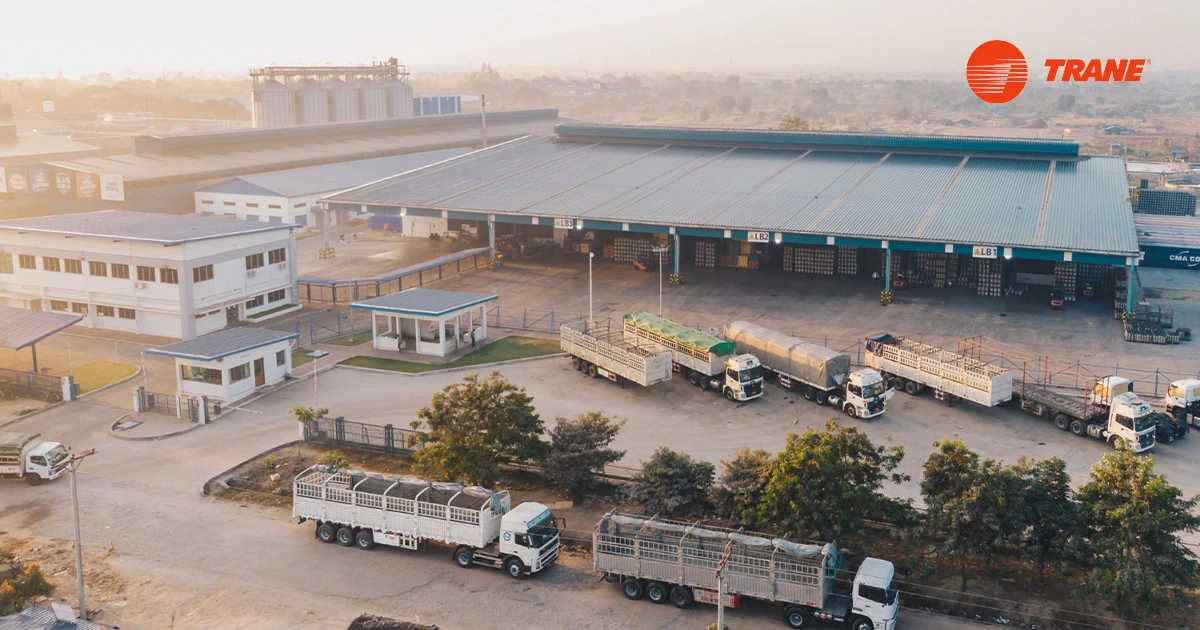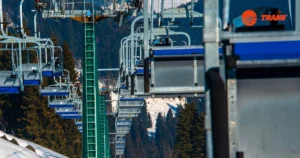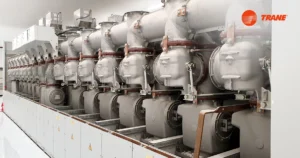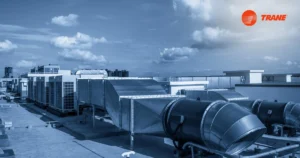Qatar’s rapid industrial expansion is reshaping its economy, from large-scale manufacturing and petrochemical operations to data centers and logistics facilities. In such a competitive environment, businesses cannot afford downtime caused by climate challenges or equipment failures. A reliable temporary chiller rental solution provides the agility, stability, and operational continuity that companies need to remain competitive. For Qatari businesses seeking fast, efficient, and scalable cooling, short-term rental systems are proving to be more than a backup — they are becoming an integral part of long-term strategy.
Cooling Demands in Qatar’s Harsh Climate
Qatar experiences some of the highest temperatures in the Gulf region, often exceeding 45°C during the summer months. Industrial facilities, healthcare centers, and commercial complexes all face enormous pressure to maintain internal climates despite these external extremes. Traditional systems alone cannot always meet fluctuating demands, particularly when infrastructure is under strain or new projects come online. Here, temporary rentals act as a bridge, delivering dependable cooling capacity at short notice.
Why Temporary Chillers Support National Growth
For industries tied to Qatar’s economic diversification efforts, flexibility is a key asset. Companies in sectors such as construction, energy, and logistics need scalable cooling that adapts to project timelines. A temporary chiller rental provides exactly that — cost-effective equipment available without the capital expenditure of permanent systems. This approach allows businesses to redirect investment toward expansion, innovation, and workforce development while ensuring climate control is never compromised.
The Role of Heating Rentals in Balanced Climate Control
While cooling dominates the conversation in Qatar, seasonal shifts and industrial processes often require dual solutions. Heating rentals provide the necessary balance by supporting facilities during cooler months or for specific process requirements. Industries such as pharmaceuticals, food production, and petrochemicals depend on precise temperature regulation, and heating systems deliver that stability. By offering both heating and cooling options, Trane Qatar ensures that organizations have the tools to maintain uninterrupted production, no matter the season.
Agility for Construction and Infrastructure Projects
Qatar’s ambitious infrastructure developments demand cooling systems that can move as quickly as the projects themselves. From stadiums and transport hubs to residential towers, construction sites often require temporary systems to maintain safe working conditions and support project-specific needs. Rental chillers meet these demands with mobile, modular setups that can be installed rapidly and scaled as projects progress. By eliminating delays caused by temperature-related challenges, businesses can keep timelines on track and budgets under control.
Safeguarding Data Centers and Technology Hubs
The growth of Qatar’s digital economy, driven by data centers and technology hubs, has made climate control a non-negotiable priority. Even brief equipment failures due to overheating can lead to data loss, financial repercussions, and reputational damage. Temporary cooling ensures consistent performance during emergencies, equipment upgrades, or demand surges. With smart monitoring and energy-efficient designs, rental solutions offer peace of mind to organizations managing sensitive digital infrastructure.
Supporting Healthcare and Public Services
Hospitals, laboratories, and government facilities also benefit from rental solutions that guarantee resilience. Healthcare environments, in particular, cannot afford downtime, as patient safety and medical outcomes depend on tightly regulated indoor climates. Trane Qatar delivers temporary systems with rapid deployment, ensuring facilities can respond to emergencies or seasonal surges without compromising care. This reliability extends to public service centers, schools, and universities, supporting the wider community through dependable infrastructure.
Sustainability and Energy Efficiency
As Qatar continues its journey toward sustainable growth, businesses are under increasing pressure to align with environmental goals. Rental systems are not only flexible but also increasingly energy-efficient. Trane integrates advanced refrigerants and innovative designs that reduce energy consumption while delivering high performance. This positions temporary solutions as part of a greener pathway, supporting organizations as they balance operational demands with carbon reduction targets.
Case Applications in Qatar’s Market
Temporary rental systems are already enabling critical projects across Qatar. For example, petrochemical plants rely on them to maintain production stability during scheduled maintenance, ensuring revenues are protected. Event organizers use them to provide safe, climate-controlled environments for large gatherings. Logistics hubs and cold storage operators deploy rentals to safeguard perishable goods moving through Qatar’s trade routes. Each case illustrates how adaptable cooling is directly tied to business resilience and national competitiveness.
Why Trane Qatar Is the Partner of Choice
Trane’s expertise goes far beyond equipment delivery. Clients benefit from a comprehensive service model that includes consultation, site assessment, installation, and continuous monitoring. This end-to-end support ensures that every rental system is optimized for performance and reliability. With decades of global experience and a deep understanding of Qatar’s climate and business needs, Trane is uniquely positioned to provide not just short-term relief but long-term strategic value.
Closing Thought
For organizations across Qatar, adaptability is the key to sustaining growth. Reliable rental systems allow businesses to operate confidently through challenges, expansions, and emergencies. By choosing Trane, companies gain access to tailored solutions that combine efficiency, flexibility, and sustainability. To strengthen operations even further, many organizations are also leveraging advanced air cooled chiller systems, reinforcing climate control strategies that are aligned with both local demands and international standards.




